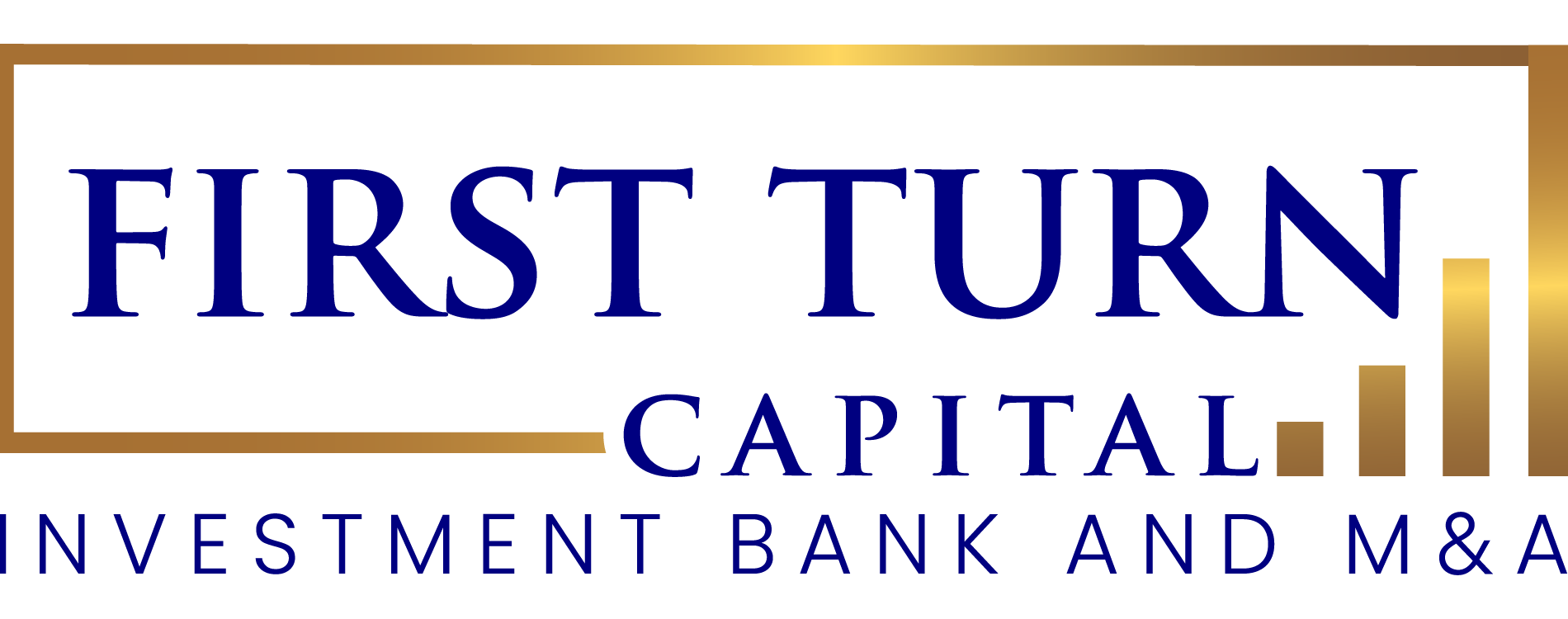Debt Capital Markets



Smart Borrowing for Growth
Strategic Debt Solutions
The Right Debt Strategy Executed by ExpertsSome companies don't want to give up ownership to raise capital. Instead of selling shares and diluting equity, businesses can raise capital through capital solutions, bonds, or structured debt deals via debt capital markets (DCM).
Our Debt Capital Market Expertise
At First Turn Capital, we connect companies to local and global credit markets. Our investment bankers help organizations structure and execute debt financing solutions while considering market conditions, the interest rate environment, and financial modeling. Our team helps businesses secure financing with the right terms, pricing, and risk profile.
What Is the Debt Capital Market?
Understanding the Debt Capital Market and How It Works
In debt capital markets, businesses and organizations raise money by issuing debt securities instead of selling stock. Unlike equity capital markets, where investors take ownership stakes in exchange for capital, DCM bankers let companies borrow money while keeping full control of their business.
Primary market participants in the debt capital market include companies and governments (e.g., government bonds or treasury bonds). The debt securities issued are directly provided to the organization in need of debt funding. On the other hand, the secondary market in the DCM refers to the process of reselling already issued bonds.
Debt financing can take many forms:
- Corporate bonds: Companies issue fixed-income securities to investors, agreeing to periodic interest payments until the principal is repaid.
- Syndicated capital solutions: Large-scale capital solutions provided by multiple lenders, reducing risk for each participant.
- Private debt placements: Direct capital solutions from institutional investors that offer flexibility in terms and repayment.
- Asset-backed securities (ABS): Debt instruments secured by company assets, such as receivables or real estate.
- Mezzanine financing: A hybrid between debt and equity that offers higher returns to investors while preserving borrower ownership.
Debt Capital Market Solutions from First Turn Capital
Helping Businesses Access Capital with Confidence
Corporate Bond Issuance
Issuing bonds is a great way to raise large amounts of capital from institutional investors while locking in fixed interest rates. It's a cost-effective method to secure funding without relying on traditional bank capital solutions.
We guide businesses through:
- Bond structuring and pricing
- Investor targeting and distribution
- Regulatory compliance and credit rating

Syndicated Capital Solutions and Credit Facilities
For businesses that need large-scale financing, syndicate capital solutions provide access to multiple lenders under one structured deal. Instead of borrowing from a single bank, companies can spread risk across multiple lenders while securing better terms.
Benefits of syndicated capital solutions include:
- Flexible repayment structures
- Lower borrowing costs
- Access to substantial capital

Private Debt and Direct Lending Solutions
A private placement is a flexible alternative if companies want to raise debt without going through public markets. Additionally, it's particularly useful for companies looking to raise capital quickly or outside traditional bank financing.
These direct capital solutions from institutional investors, hedge funds, and private credit funds provide businesses with:
- Tailored loan terms
- Confidentiality
- Flexible repayment options

Asset-Backed Securities (ABS) and Structured Debt
Structured debt provides liquidity without companies having to take on traditional capital solutions. This approach allows businesses to turn existing assets into a funding source. With our team's structuring expertise, we help companies create:
- ABS backed by accounts receivable, real estate, or inventory
- Securitization of revenue-generating assets for lower borrowing costs
- Hybrid debt solutions that combine structured financing with traditional capital solutions

Debt Refinancing and Recapitalization
We assist with:
- Refinancing high-cost debt to reduce interest expenses
- Capital restructuring
- Covenant negotiations

Advantages of Raising Capital in Debt Capital Markets
Flexible Financing Solutions for Business Expansion
Keep Full Control of Your Business

Lower Cost of Capital Compared to Equity
Debt financing is often cheaper than equity financing because:
- Interest payments are tax-deductible, which reduces overall borrowing costs.
- Lenders don't take a share of future profits the way equity market investors do.
- Debt financing agreements are structured with clear repayment schedules, unlike dividend or shareholder expectations.

Access to Large Amounts of Capital
Companies can raise large funds through debt markets. These funds can then be used to expand, acquire competitors, or invest in new opportunities without selling equity.

Strengthen Your Balance Sheet
Properly structured debt financing can:
- Improve liquidity without draining working capital.
- Reduce reliance on expensive short-term credit lines.
- Enhance financial ratios, improving credit ratings and investor appetite and confidence.

Build Relationships with Lenders and Institutional Investors
Successful debt financing transactions help organizations and companies establish credibility with large banks, financial institutions, institutional lenders, and investors. This makes financing easier and potentially more cost-effective.

Is Debt Financing the Right Move for Your Business? Let's Talk
Connect with First Turn Capital Today
With expertise on the same level as top investment banks and exceptional distribution capabilities, we make sure each client gets the right funding structure with which they're content. Debt capital markets give your business a strategic advantage, and we're here to help facilitate the transactions with your best interests in mind.
Discuss your debt capital market options with us today.
Debt financing comes with many benefits, but it also requires careful financial analysis and risk management by investment banking analysts to make sure you're on the right track.
For inquiries, reach out to our team:What are examples of debt capital?
Examples of debt capital include corporate bonds, syndicate capital solutions, investment grade bonds, high yield bonds, asset-backed capital solutions, and mezzanine financing.
What are debt capital markets terms?
Some of the most important terms in debt capital markets are:
-
Coupon rate: The interest rate a bond pays to investors, typically expressed as a percentage of the bond’s face value.
-
Maturity date: The date when the principal amount of a loan or bond is due to be repaid.
-
Yield to maturity (YTM): The total return an investor can expect if they hold a bond until maturity.
-
Spread: The difference between the yield of a corporate bond and a government bond. This indicates the risk premium.
-
Callable bonds: Bonds that a company can repay early before the maturity rate.
-
Debt covenant: Conditions set by lenders that companies must follow (e.g., maintaining a certain debt-to-equity ratio).
-
How are debt markets different from equity markets?
In corporate finance, debt capital markets (DCM) refer to the process of raising capital through capital solutions or bonds. Companies then repay the borrowed amount with interest, but they retain full ownership of their company. In contrast, equity markets (ECM) are where owners sell company shares to investors in exchange for capital. There is no need for repayment, but this approach dilutes ownership.
What is a high yield bond?
Also known as a junk bond, a high yield bond is a corporate bond that has a lower credit rating and pays a higher interest rate to compensate for increased risk. Companies usually issue high-yield bonds when they need capital but don’t have an investment-grade rating, or if they want an alternative to equity financing.
What does a debt capital market group do?
A DCM group within an investment bank guides companies in raising capital through debt issuance and deal structuring. This group analyzes the capital needs and debt capacity of a company and develops financing strategies to help them achieve their goals.
Is Your Business Ready for a Sale or Strategic Exit?
Why This 60 Second Form Is Worth Your Time
It’s the first step in exploring a potential M&A transaction with First Turn Capital.
- Uncover What’s Driving Your Valuation
- Spot Operational Gaps That Could Kill a Deal
- See If You’re Caught in the Owner’s Trap
- Understand What Buyers Are Really Looking For
Once you complete the form, a member of our senior M&A team will review it and follow up with a confidential, no-pressure call. We’ll walk through your responses, discuss timing, and share what today’s buyers are paying for, along with what they’re avoiding. Whether you're planning for the future or already entertaining offers, this is a smart place to start.

Stay Ahead with Insights Built for Business Owners
Start the Conversation With First Turn Capital
Thinking about a sale? Exploring growth capital? Planning for something in between? It starts with this form.
Give us 60 seconds, and we’ll help you make your next move with confidence.
Join hundreds of owners and executives who receive our monthly updates. We share practical insights on deal activity, valuation trends, and the strategies successful companies use to plan for a sale or partnership. It’s clear, focused content from advisors who understand both sides of the table.

